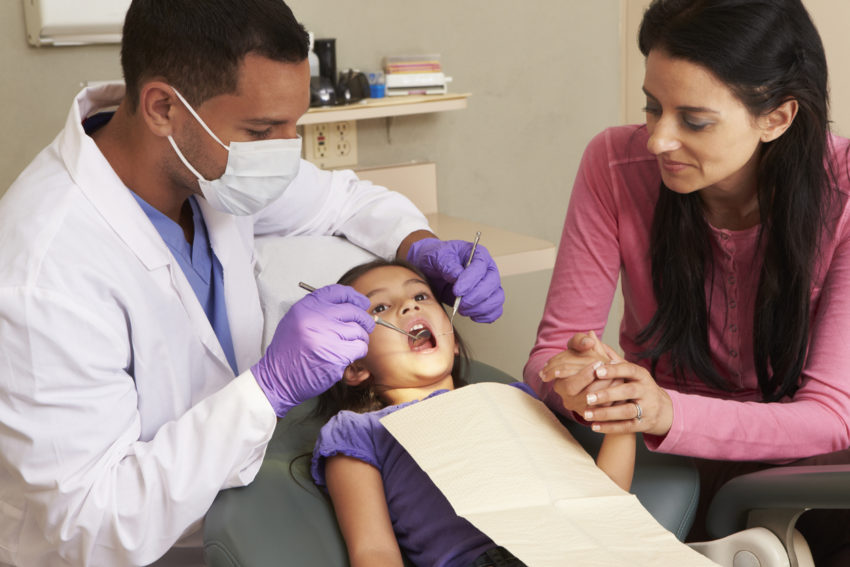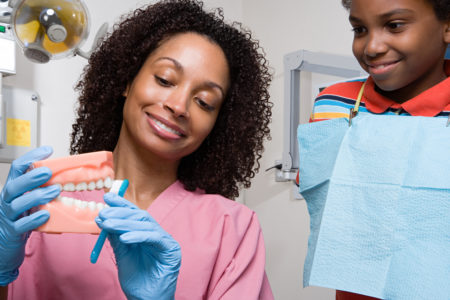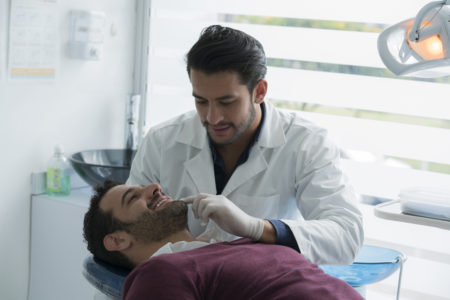
Share On Social!
By Vivian Vasallo
Executive Director of the Delta Dental Institute
As a Latina leader in health care, I am proud to celebrate Hispanic Heritage Month and the many contributions Latinos have made to our country, especially in healthcare.
This month is a time to celebrate the progress that has been made and soberly examine where we have more work to do to improve disparities in access to care and diversity in the health – and oral health – fields. At the Delta Dental Institute, we aim to close the gap in oral health access and outcomes faced by Latinos in the U.S. through our community engagement, research, and advocacy efforts.
Latinos have long been making important contributions to the nation’s health care, going back as early as the 1500s with Francisco Bravo authoring the first medical book published on the American continent. In the 1800s, Dr. Carlos Juan Finlay made the important discovery linking yellow fever to mosquitos. 
My earliest exposure to a Latino in health care was my father, a forensic pathologist. I also remember, as a young girl, the nation appointing its first Latina surgeon general, Dr. Antonia Novella. As an adult, my primary care physician has always been a Latina. Seeing Latino health professionals has always been “my norm;” however, I recognize that experience is the exception—but something we must strive toward for more Latinos across the country.
With a population of almost 60 million people, Latinos constitute over 18 percent of the nation’s population. But when it comes to representation in health care and in health outcomes, tremendous disparities exist—Latino medical providers account for only about five percent of the medical community. In oral health specifically, Latino dental providers are drastically underrepresented in the dentist population and those that are in practice shoulder a disproportionate share of dental care for minority and underserved communities.
Diversity in health care matters, as there are better outcomes when minority patients see minority medical professionals. For Latinos, closing this gap is significant because Latinos face worse health outcomes than non-Latinos. With respect to oral health, 36 percent of Latino adults have untreated dental disease, as compared to 22 percent of Caucasians, and untreated tooth decay in primary teeth among children ages two to eight is twice as high for Latino children compared to Caucasian children.
Improving diversity among health care providers is a critical part of addressing the disparity in health outcomes in the Latino population. The Surgeon General and National Academies Institute of Medicine have noted that increasing the number of minority [Latino] dentists would be an avenue to improving cultural competency and access to care while decreasing health disparities in oral health. This is supported by research on racial concordance showing improved health outcomes in concordant provider-patient relationships. Increasing Latino representation in the dental workforce will not resolve underlying oral health disparities in those populations, but it is a critical component of any strategy to address these issues.
I’m personally passionate about expanding both access and representation in the oral health field. At the Delta Dental Institute, we strive to ensure all Americans can have the healthy smile they deserve and live their healthiest lives. As part of that, we are working with partners to bring greater access to care.
One example specific to the Latino community is Mary’s Center in Washington, D.C., supported by the Delta Dental Community Care Foundation. Led by Latino health leader Maria Gomez, a Presidential Citizens Medal and D.C. Dental Society 2016 Humanitarian of the Year Awardee, Mary’s Center provided medical and dental care to more than 60,000 people in 2019. They’ve also worked to address inequities during COVID-19. Through our community engagement, research, and advocacy at the Delta Dental Institute, we strive to expand quality oral health care to more people in the Latino community.
As we reflect this Hispanic Heritage Month, it is important that we both celebrate the legacy of Latino working in the field and push for better representation of Latinos in health care professions. To patients in communities across the country, it is critical that we take meaningful action to improve upon health disparities faced by Latinos in the U.S.
Read more survivor stories and news about Healthy Families & Schools!
Editor’s Note: This is a guest blog post from the Delta Dental Institute in Washington, DC. The Delta Dental Institute is dedicated to advancing oral health for all Americans in partnership with Delta Dental companies and dedicated partners across the country. Contact the Delta Dental Institute or visit their Facebook page.
Explore More:
Healthcare AccessBy The Numbers
142
Percent
Expected rise in Latino cancer cases in coming years



